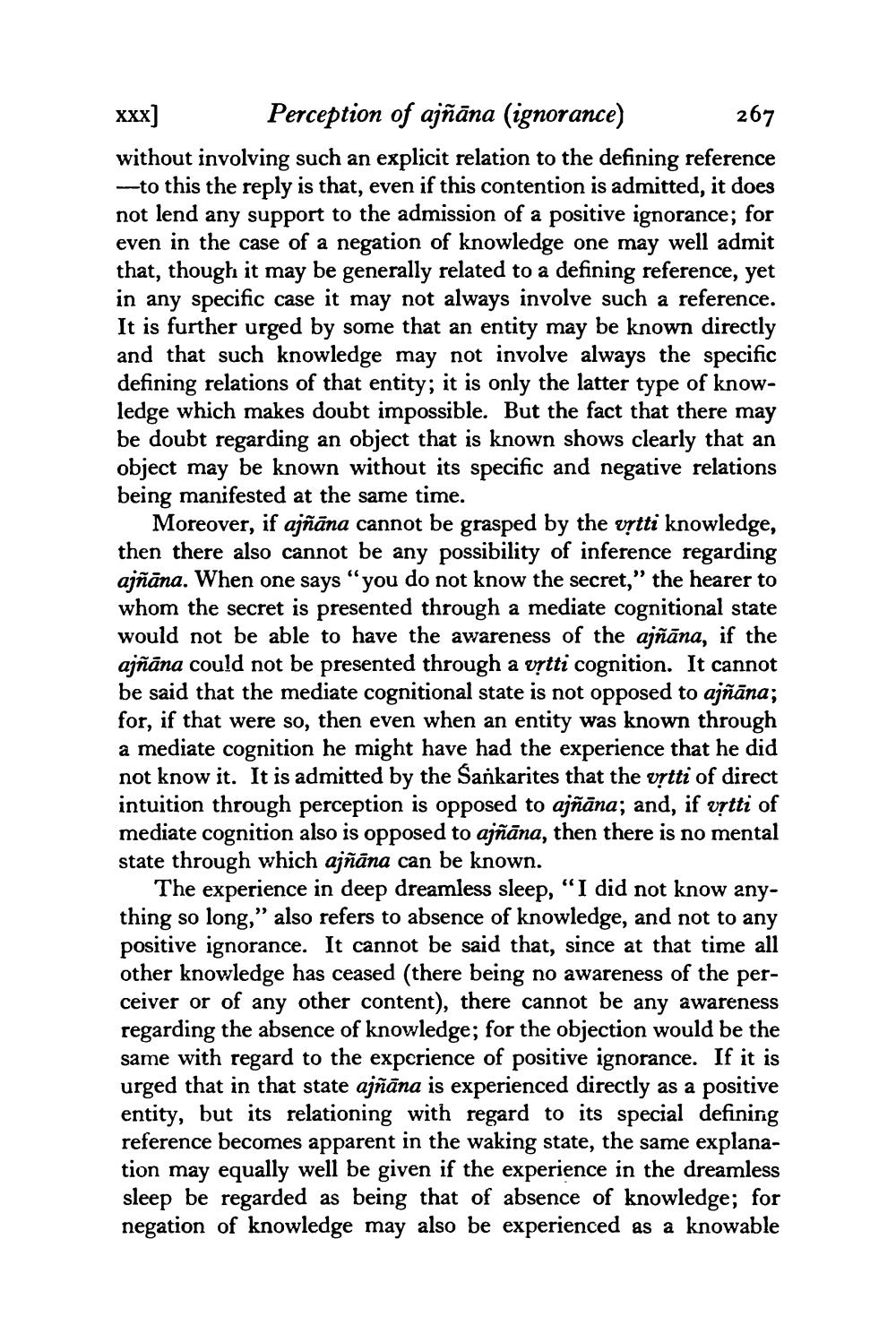________________
XXX] Perception of ajñāna (ignorance) 267 without involving such an explicit relation to the defining reference
-to this the reply is that, even if this contention is admitted, it does not lend any support to the admission of a positive ignorance; for even in the case of a negation of knowledge one may well admit that, though it may be generally related to a defining reference, yet in any specific case it may not always involve such a reference. It is further urged by some that an entity may be known directly and that such knowledge may not involve always the specific defining relations of that entity; it is only the latter type of knowledge which makes doubt impossible. But the fact that there may be doubt regarding an object that is known shows clearly that an object may be known without its specific and negative relations being manifested at the same time.
Moreover, if ajñāna cannot be grasped by the vștti knowledge, then there also cannot be any possibility of inference regarding ajñāna. When one says "you do not know the secret," the hearer to whom the secret is presented through a mediate cognitional state would not be able to have the awareness of the ajñāna, if the ajñāna could not be presented through a vrtti cognition. It cannot be said that the mediate cognitional state is not opposed to ajñāna; for, if that were so, then even when an entity was known through a mediate cognition he might have had the experience that he did not know it. It is admitted by the Sankarites that the ortti of direct intuition through perception is opposed to ajñāna; and, if vrtti of mediate cognition also is opposed to ajñāna, then there is no mental state through which ajñāna can be known.
The experience in deep dreamless sleep, "I did not know anything so long," also refers to absence of knowledge, and not to any positive ignorance. It cannot be said that, since at that time all other knowledge has ceased (there being no awareness of the perceiver or of any other content), there cannot be any awareness regarding the absence of knowledge; for the objection would be the same with regard to the experience of positive ignorance. If it is urged that in that state ajñāna is experienced directly as a positive entity, but its relationing with regard to its special defining reference becomes apparent in the waking state, the same explanation may equally well be given if the experience in the dreamless sleep be regarded as being that of absence of knowledge; for negation of knowledge may also be experienced as a knowable




